Many Americans may have skipped potentially life-saving care out of fear of contracting COVID-19 at hospitals, a new study suggests.
Researchers at Cedars-Sinai Medical Center in Los Angeles, California, surveyed people to determine what level of risk they were willing to take if they were faced with a medical crisis during the pandemic.
The team found that more than a quarter would rather stay home if they were suffering conditions such as a heart attack or appendicitis than take a minimal risk of contracting the virus at a facility.
Many health experts fear the death toll of the COVID-19 pandemic may be higher than official numbers because many ancillary deaths occurred due to people avoiding needed treatment.
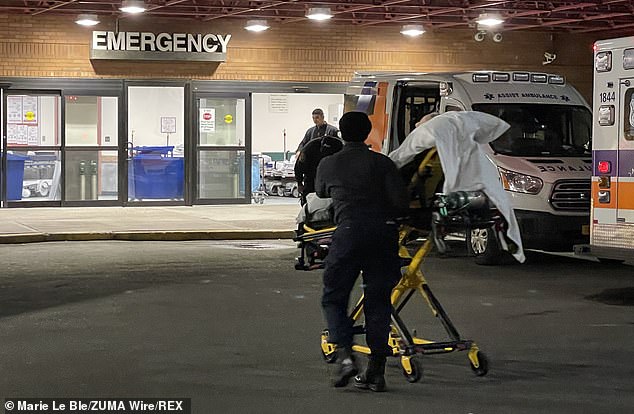
More than 25% of respondents to a survey said they would potentially pass on life saving medical care out of fear of contracting COVID-19 at a hospital. Pictured: A woman in Manhattan, New York, is taken to the emergency room on New Years Eve
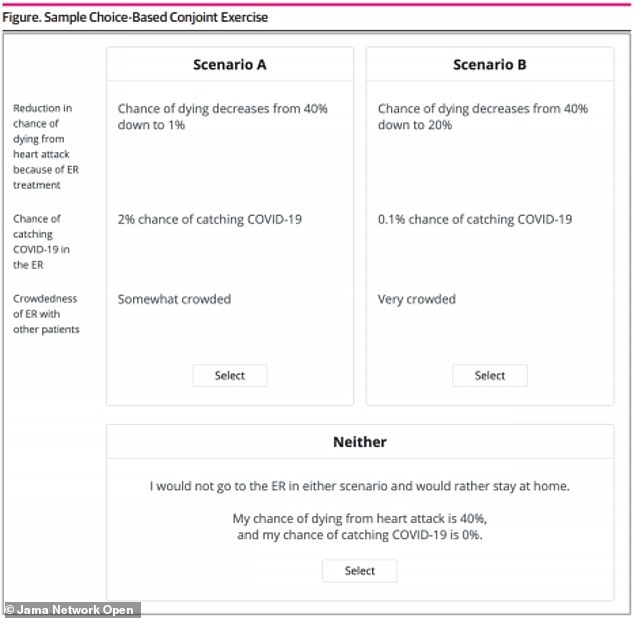
An example of the module participants were presented with in the study. Each participant was given the choice between two hospitals, or staying home, each with different risks of death of catching COVID-19
For the study, published in JAMA Network Open, the team created a module that presented participants with a scenario, and three options.
A participant was told they either had a heart attack or appendicitis.
Those who received the heart attack scenario were told they had a 40 percent chance of death, though the figure could drop from anywhere to one percent to 20 percent if they went to the hospital.
Participants who received the appendicitis scenario were told they have a four percent chance of dying, but could drop the figure to anywhere between 0.1 percent and two percent if they went to an emergency room.
They were given the option of two different hospitals, each had a different likelihood of death and a different potential chance of contracting the virus, between 0.1 and two percent.
Participants were also given the option to avoid medical treatment and deal with the issue at home.
Doing so would not decrease the chance of death, but would drop their chance of contracting COVID-19 to zero.
Among the group presented with the heart attack scenario, 83 percent sought out medical care despite risks of Covid.
However, 16 percent chose to stay home despite the high risk of death.
In the appendicitis scenario, just over 25 percent of participants said they would choose to stay home rather than risk contracting COVID-19 at the hospital.
‘Our finding that up to one-quarter of individuals indicated they were willing to forego potentially life-saving treatment during the first peak of the pandemic to avoid exposure to COVID-19 is consistent with prior literature demonstrating significant reductions in hospitalizations for many serious conditions during the pandemic,’ the authors wrote.
Those who chose not to attend the hospital were most likely to be between the ages of 30 and 49, black and people who believe themselves to have excellent health.
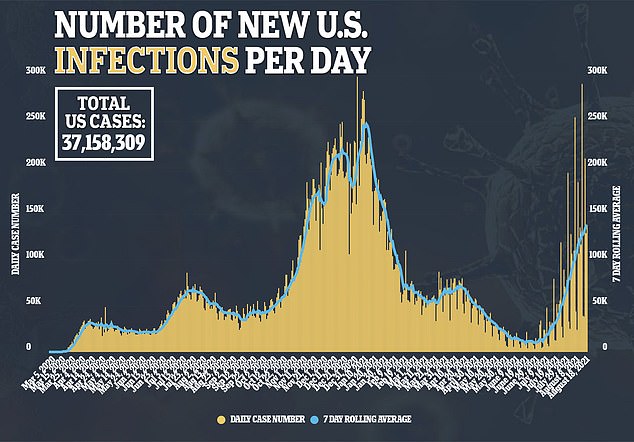
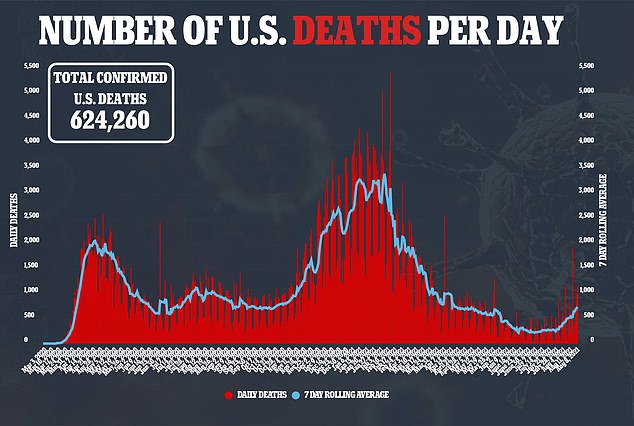
While this study was a simulation, the researchers believe these real life decisions that some Americans made could have long term ramifications.
‘It stands to reason that even more individuals may be willing to forgo nonemergent care,’ they wrote.
‘This assumption is supported by data showing that more than three-quarters of adults nationwide delayed routine medical care during the pandemic.
‘While the association of forgone care with emergent issues was identified early in the pandemic, the outcomes associated with delayed routine and preventive care will inevitably lead to increased morbidity and mortality over time.’
The World Health Organization estimates that the COVID-19 pandemic was responsible for eight million deaths in 2020, despite official counts only tallying 3.4 million.
This is because many died from ancillary causes associated with the pandemic, such a chronic condition that treatment was disrupted for.
Researchers also found that people who perceived themselves to be at higher risk to contract the virus were also more likely to seek out treatment.
‘While this may appear counterintuitive prima facie, this association may be a surrogate for health-related anxiety; previous research has indicated a positive association between anxiety and health care use,’ researchers wrote.
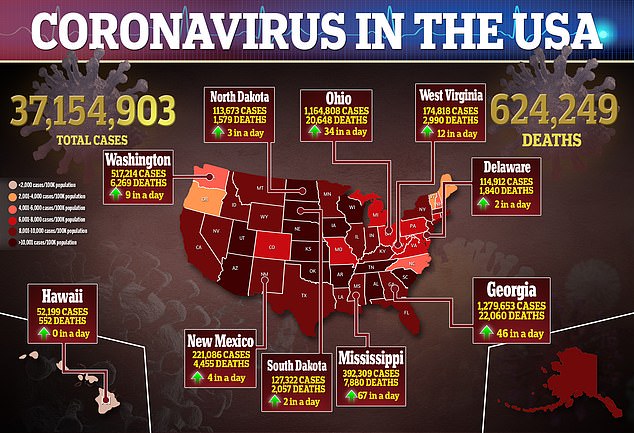
Source link : https://www.dailymail.co.uk/health/article-9908957/More-25-Americans-willing-risk-not-receiving-life-saving-treatment-avoid-COVID-19.html











